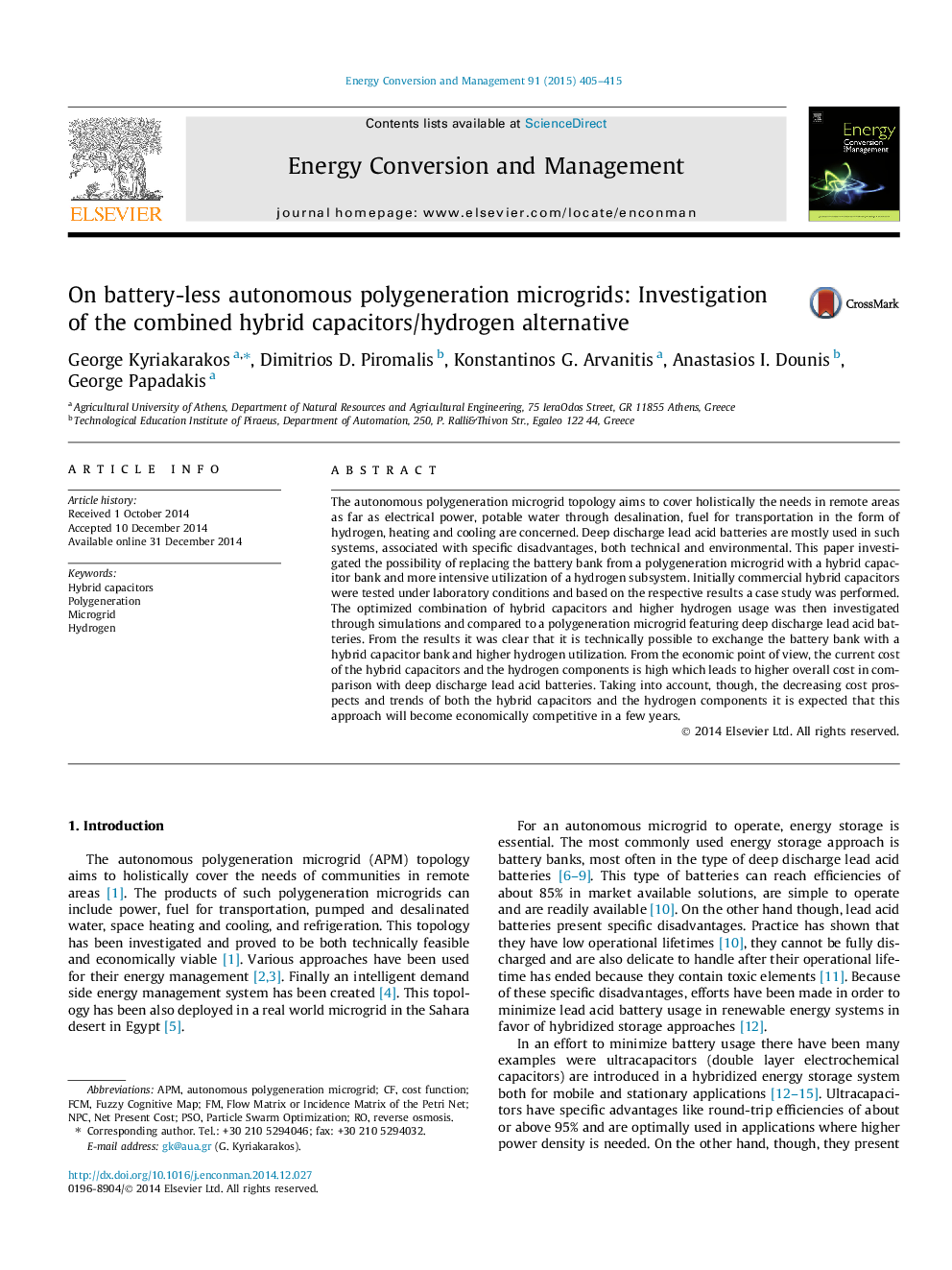| Article ID | Journal | Published Year | Pages | File Type |
|---|---|---|---|---|
| 763952 | Energy Conversion and Management | 2015 | 11 Pages |
•A battery-less autonomous polygeneration microgrid is technically feasible.•Laboratory testing of hybrid capacitors.•Investigation of hybrid capacitors utilization along with hydrogen subsystem.
The autonomous polygeneration microgrid topology aims to cover holistically the needs in remote areas as far as electrical power, potable water through desalination, fuel for transportation in the form of hydrogen, heating and cooling are concerned. Deep discharge lead acid batteries are mostly used in such systems, associated with specific disadvantages, both technical and environmental. This paper investigated the possibility of replacing the battery bank from a polygeneration microgrid with a hybrid capacitor bank and more intensive utilization of a hydrogen subsystem. Initially commercial hybrid capacitors were tested under laboratory conditions and based on the respective results a case study was performed. The optimized combination of hybrid capacitors and higher hydrogen usage was then investigated through simulations and compared to a polygeneration microgrid featuring deep discharge lead acid batteries. From the results it was clear that it is technically possible to exchange the battery bank with a hybrid capacitor bank and higher hydrogen utilization. From the economic point of view, the current cost of the hybrid capacitors and the hydrogen components is high which leads to higher overall cost in comparison with deep discharge lead acid batteries. Taking into account, though, the decreasing cost prospects and trends of both the hybrid capacitors and the hydrogen components it is expected that this approach will become economically competitive in a few years.
